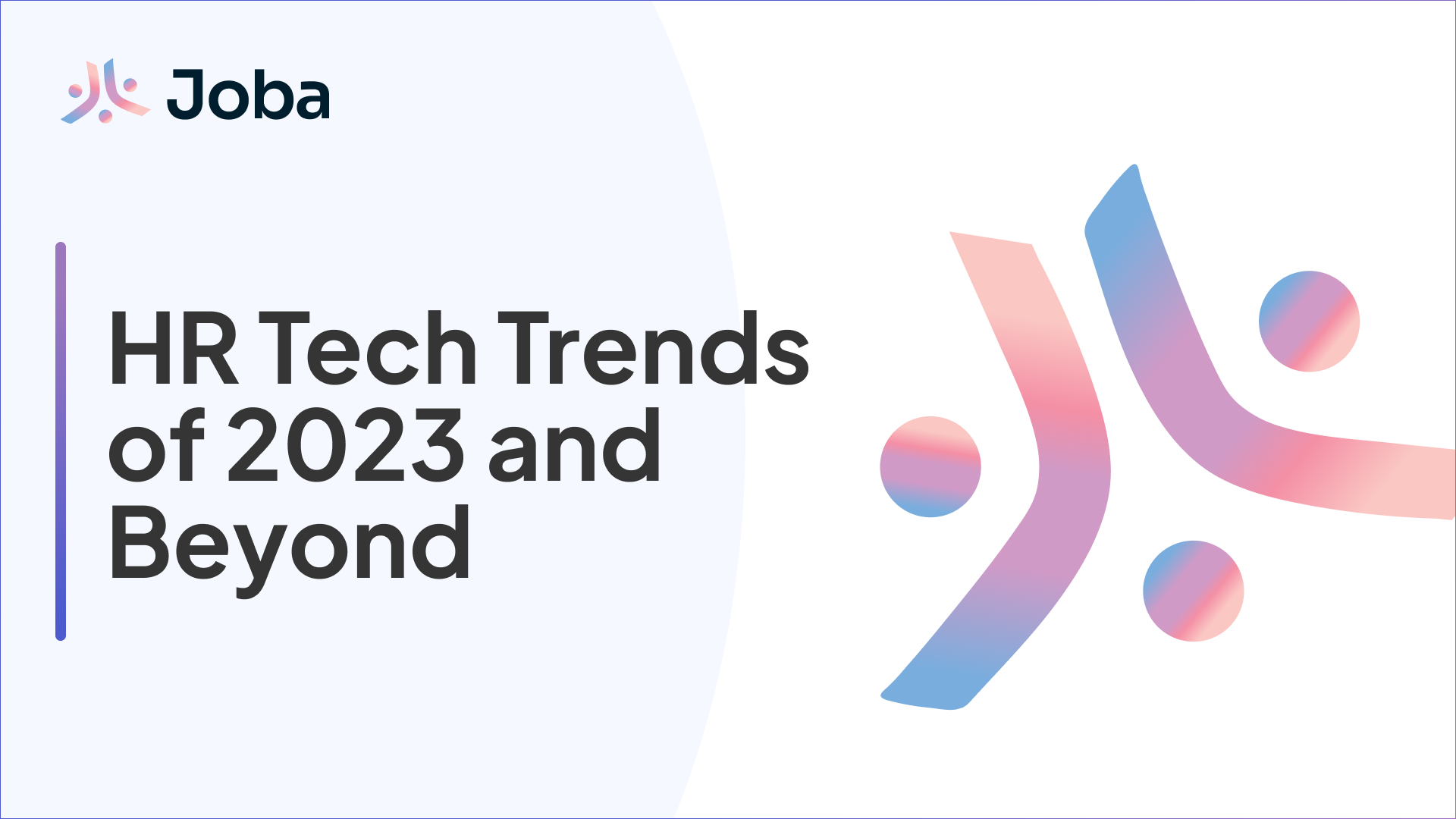2023 and Beyond: The HR Tech Trends You Can't Afford to Ignore

In the fast-paced world of human resources, staying ahead of the curve is crucial. The HR landscape is ever-evolving, and in 2023 and beyond, several key tech trends are set to reshape the way organizations manage their workforce. In this article, we'll delve into the HR tech trends that you simply can't afford to ignore. From AI-powered recruitment to employee experience platforms, these innovations are poised to make a significant impact on HR strategies in the coming years.
1. AI-Powered Recruitment
Artificial Intelligence (AI) is transforming the recruitment process. HR professionals are increasingly turning to AI-powered tools to streamline candidate sourcing, screening, and selection. Machine learning algorithms can analyze resumes, predict candidate success, and even conduct initial interviews. This not only saves time but also enhances the quality of hires by identifying the best-fit candidates more efficiently.
2. Employee Experience Platforms (EXPs)
Employee experience has become a top priority for organizations. Employee Experience Platforms (EXPs) are emerging as powerful tools to improve engagement and productivity. These platforms provide a centralized hub for employees, offering everything from onboarding and training resources to wellness programs and feedback mechanisms. EXPs are designed to create a cohesive and positive employee journey, leading to higher retention rates and increased job satisfaction.
3. Remote Work Technologies
The shift to remote work is here to stay, and HR tech is adapting accordingly. Organizations are investing in advanced remote work technologies to support distributed teams. This includes virtual collaboration tools, project management software, and enhanced cybersecurity measures to protect remote workers and sensitive data.
4. Data-Driven Decision-Making
Data analytics continues to play a pivotal role in HR. HR professionals are leveraging data to make informed decisions about talent acquisition, retention, and workforce planning. Predictive analytics tools can forecast turnover rates, identify skills gaps, and optimize compensation strategies, enabling organizations to proactively address HR challenges.
5. Personalized Learning and Development
One-size-fits-all training programs are becoming obsolete. HR tech now allows for personalized learning and development plans tailored to each employee's unique skills and career goals. AI-driven recommendations suggest relevant courses and opportunities for growth, fostering continuous learning within the organization.
6. Chatbots for HR
Chatbots are revolutionizing HR by providing instant support to employees. They can answer common HR-related queries, assist with benefits enrollment, and even facilitate employee surveys. Chatbots improve efficiency, allowing HR professionals to focus on more complex tasks while ensuring employees have 24/7 access to HR information.
7. Diversity, Equity, and Inclusion (DEI) Tech
DEI initiatives are gaining momentum, and technology is aiding in this important journey. HR tech tools are helping organizations track and measure diversity metrics, identify bias in recruitment processes, and implement strategies to foster an inclusive workplace culture.
8. Robotic Process Automation (RPA)
RPA is streamlining repetitive HR tasks such as payroll processing and data entry. By automating these processes, HR teams can reduce errors, cut costs, and free up valuable time to focus on strategic initiatives and employee engagement.
9. Blockchain for HR Records
Blockchain technology is enhancing the security and transparency of HR records. It ensures the integrity of employee data, certifications, and credentials. This innovation is particularly valuable in industries that require strict compliance and verification.
10. Virtual Reality (VR) in Training
VR is revolutionizing employee training by creating immersive learning experiences. From simulating complex tasks to conducting virtual team-building exercises, VR is making training more engaging and effective.
As we step into 2023 and beyond, the HR tech landscape is set to evolve at a rapid pace. These emerging trends are not merely technological novelties; they are strategic tools that can help organizations thrive in an ever-changing business environment. By embracing these HR tech innovations, you can stay ahead of the competition, attract and retain top talent, and create a workplace that is agile, data-driven, and focused on employee well-being and growth. The future of HR is tech-driven, and the time to adapt is now.
Ready to embrace the future of HR tech? Join Joba Network today and lead the way in 2023 and beyond.
Frequently asked questions
No, some industries like health care and manufacturing require physical presence. But many fields, especially in tech and marketing, are well-suited for remote work.
Not necessarily. Many remote jobs offer competitive salaries and benefits.
There are various job boards dedicated to remote work, such as We Work Remotely and Remote OK.
The key is to set a routine, create a dedicated workspace, and use productivity tools to stay on track.
Tools like Slack, Zoom, and Asana are invaluable for remote work, aiding in communication and project management.




